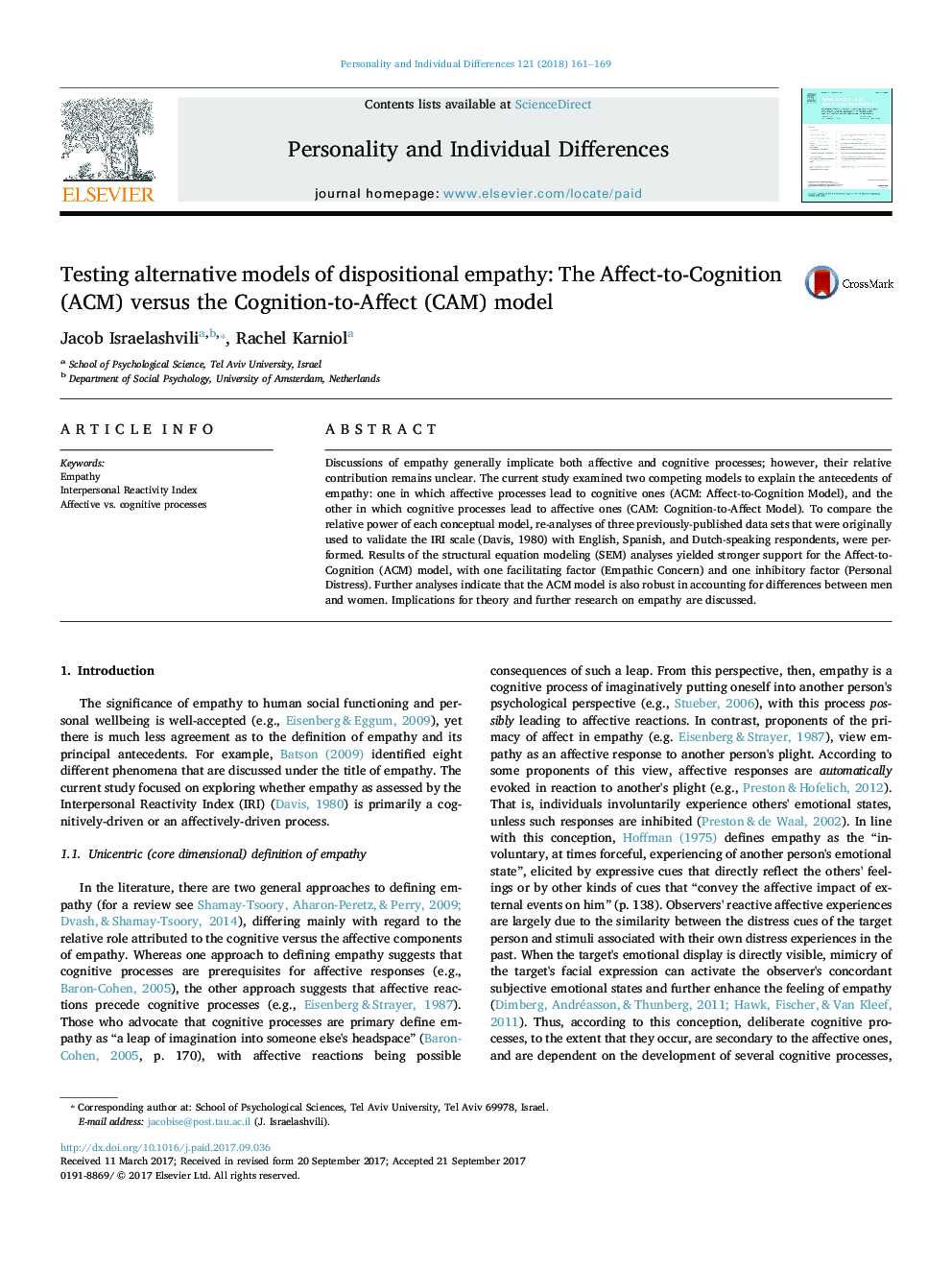| کد مقاله | کد نشریه | سال انتشار | مقاله انگلیسی | نسخه تمام متن |
|---|---|---|---|---|
| 5035494 | 1471997 | 2018 | 9 صفحه PDF | دانلود رایگان |
عنوان انگلیسی مقاله ISI
Testing alternative models of dispositional empathy: The Affect-to-Cognition (ACM) versus the Cognition-to-Affect (CAM) model
دانلود مقاله + سفارش ترجمه
دانلود مقاله ISI انگلیسی
رایگان برای ایرانیان
موضوعات مرتبط
علوم زیستی و بیوفناوری
علم عصب شناسی
علوم اعصاب رفتاری
پیش نمایش صفحه اول مقاله

چکیده انگلیسی
Discussions of empathy generally implicate both affective and cognitive processes; however, their relative contribution remains unclear. The current study examined two competing models to explain the antecedents of empathy: one in which affective processes lead to cognitive ones (ACM: Affect-to-Cognition Model), and the other in which cognitive processes lead to affective ones (CAM: Cognition-to-Affect Model). To compare the relative power of each conceptual model, re-analyses of three previously-published data sets that were originally used to validate the IRI scale (Davis, 1980) with English, Spanish, and Dutch-speaking respondents, were performed. Results of the structural equation modeling (SEM) analyses yielded stronger support for the Affect-to-Cognition (ACM) model, with one facilitating factor (Empathic Concern) and one inhibitory factor (Personal Distress). Further analyses indicate that the ACM model is also robust in accounting for differences between men and women. Implications for theory and further research on empathy are discussed.
ناشر
Database: Elsevier - ScienceDirect (ساینس دایرکت)
Journal: Personality and Individual Differences - Volume 121, 15 January 2018, Pages 161-169
Journal: Personality and Individual Differences - Volume 121, 15 January 2018, Pages 161-169
نویسندگان
Jacob Israelashvili, Rachel Karniol,